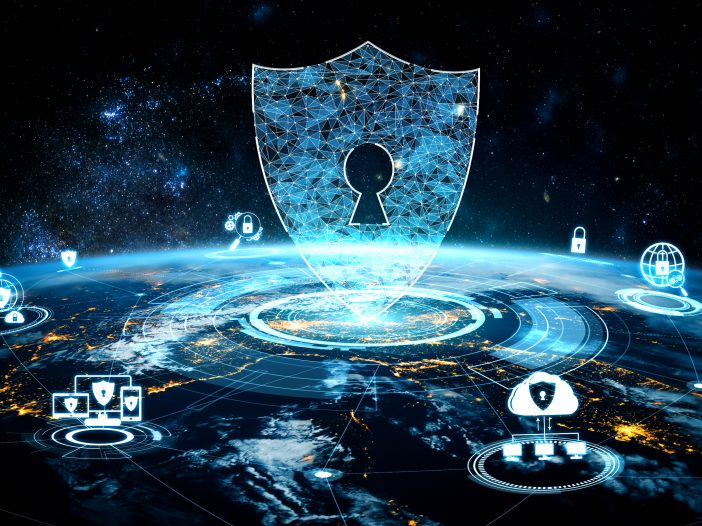
Weak cybersecurity culture results in scenarios where unsuspecting employees wire millions of dollars to cybercriminals. It can happen anywhere, at any time. Even right here in Bakersfield. Recently, a local agriculture company failed to spot a phishing email and wired $2 million to a criminal organization.
That agricultural company got lucky. The Secret Service stopped the payment just in time. Others are not as fortunate. They unwittingly send money to criminals overseas, suffer reputational damage or experience catastrophic downtime. It’s an expensive mistake. Cybercrime costs the global economy an incredible $445 billion per year – and you can expect it to get worse.

Attackers continually upskill and grow more sophisticated
From using LinkedIn to learn about people’s titles and roles to monitoring people’s communication to learning how to imitate their writing patterns, today’s criminals orchestrate highly personalized, targeted cybersecurity attacks.
Your business is at risk, and you need to make sure you are prepared.
5 Signs Hackers Broke into Your Computer, Network or Phone
Once you’re attacked, you need to act quickly to minimize the damage. Unless you have a highly skilled managed IT services provider watching your network, you probably won’t notice criminals hiding in your system.
How providers of managed IT services uncover attacks
To help you spot the signs, we turned to Diamond IT’s Virtual Chief Information Security Officer Cody Cooper. As a veteran and Certified Information Security Systems Professional (CISSP), Cooper has a unique blend of skills and experience that he uses to keep our clients protected.
Here are Cooper’s top 5 signs you’ve been hacked.
1. Things just stop working
A variety of odd situations provides a clear indication that a nefarious character is in your system.
Your internet goes out, all the time
Unless you frequently experience internet outages, unexplained disconnections can easily occur when someone has entered your system. This red flag is illuminated if your provider tells you that, from their end, your connection is fine.
Something, in general, seems out of place
Maybe your desktop background changes. Or you start getting odd error messages – like an inbox is unavailable. The hackers might even tell you you’ve been hacked.
2. Apps or programs you never installed appear
Do you suddenly see an app or account that you do not remember adding to your device? You might not have been the person who put it there. This is especially a risk on smartphones.
Cell phones are easy targets for hackers
People neglect to screen their smartphones for cybersecurity as often as they examine their desktops.
Reach out to professionals if you encounter problems such as:
- Your phone runs persistently slowly because hackers are running programs in the background
- Strange error messages pop up
- The list of email accounts on your phone includes accounts you didn’t add
- Your data usage soars unexpectedly
3. You uncover outbound messages you didn’t send
Hackers who get into your email send messages as “you” trying to trick your contacts into sending sensitive information. They make nearly undetectable changes to your email to keep their activity hidden and maintain access to your account. Here are 2 ways you can tell they’ve gained access.
Check your sent folder
Hackers have to manually delete emails they send as “you.” With regular monitoring, you might be able to catch them in the act by checking your sent box. If you see an email you did not send, this could be an indication of a cybersecurity breach. Contact your managed IT services provider immediately.
Look at RSS feeds
Hackers will also take advantage of your RSS feeds – a part of your inbox many people ignore. They change settings so that a copy of all your emails goes to another inbox. Check for these rules. Otherwise you’ll never know if a copy of your email automatically gets forwarded to a criminal.
4. You receive odd requests from your ‘boss’
We had a client that almost fell victim to a devastating phishing attack.
- The hacker found the payroll officer at the company, likely using LinkedIn.
- The criminal impersonated the CEO.
- The imposter CEO sent a convincing email asking the employee to update the CEO’s payroll bank account to reflect their “new account.”
The employee, completely unaware of the phishing attempt, promised to “take care of it in the morning.” That gave us at Diamond IT just enough time to uncover the email and stop the employee from moving forward. This incident was minutes away from being disastrous. Thankfully, a breach was avoided. Without strong cybersecurity protocols in place, most businesses won’t be this lucky.
Strengthen network security: establish a culture where people confirm requests
At every level of your organization, people need to get verification. This is critical when dealing with sensitive information, such as financial data. Making sure that everyone verifies these types of requests through a phone call or face to face, not by replying to the questionable email, is vital to stop these attacks in their tracks.
5. Unusual email addresses are connected to your device
When hackers gain access to your device, they set up additional email accounts that are very similar to your actual account. Using this legitimate-looking address, they reach out to your contact list. Because the people trust you and they may not see the difference between JohnSmith@gmail.com and JohnaSmith@gmail.com, they’re likely to fall for the scam.
New email addresses that you didn’t create are a clear sign that someone nefarious is moving about your device.
Cybercriminals Know How to Get Around Anti-virus and Backups
Anti-virus and backups are only the beginning of a sufficient network cybersecurity solution. They offer scant protection against the attacks hackers unleash on businesses – large and small – across the country.
A simple attack releases ransomware through an email
It circumvents your anti-virus because an employee clicks a malicious link. The ransomware spreads from a single computer to others on the network, taking down computers one at a time. If it is allowed to spread for too long, it will corrupt your backups and prevent you from accessing them.
More sophisticated attacks lock up your backups first
Advanced threat actors won’t reveal themselves until they have everything under control. JP Morgan Chase encountered a cybersecurity attack where the hackers kept themselves hidden for months as they took over the company’s backups. By the time JP Morgan realized what was happening, it was too late. Over 7 million small businesses and 76 million households had been affected.
Don’t Be the Next Victim: We’re Your IT Consulting Partner
Criminals don’t discriminate. They hack everyone and businesses of all sizes and industries. Your network security is paramount.
If you don’t get your system scanned, criminals can lurk in your network undetected. Contact us to set up a Hack Scan so that we can uncover cybersecurity breaches throughout your system and let you know if you have been compromised.
Cybercriminals aren’t going anywhere
They won’t give up until they gain access to your systems. Contact us and breathe easier knowing that your networks are more protected with the help of Diamond IT: https://www.diamondit.pro/contact-diamondit/.